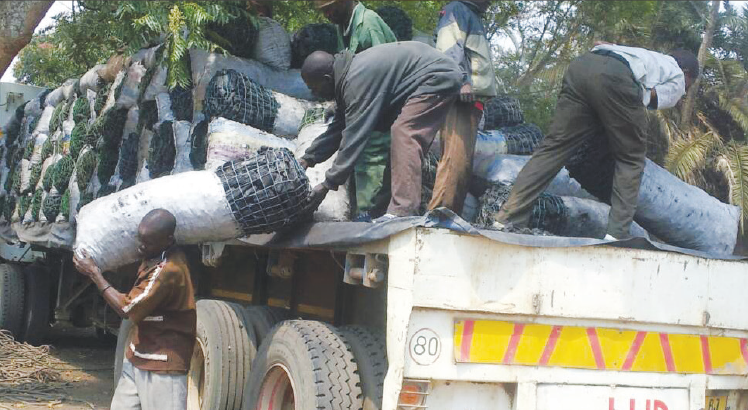A charcoal maker’s U-turn
For 15 years, Dominic Kulani, 48, of Fred Village, Traditional Authority Chekucheku in Neno District, was an unrepentant charcoal producer.
The father of six resisted calls to quit the illicit trade in charcoal that left his community treeless.
“I was producing truckloads for sale in Blantyre, spending nights in the bush while hiding from police and forestry officers,” he says.
Kulani also survived perilous chases from law enforcers.
“It was physically and emotionally draining, but I had to fend for my family,” he recounts.
However, the turnaround came in August 2023 when he received K58 000 from the Malawi Watershed Services Improvement Project (Mwasip) community environmental conservation fund.

The fund seeks to drive people like Kulani towards businesses that do not harm the environment.
Mwasip promotes sustainable landscape management in targeted watersheds while enhancing livelihoods and food security.
The matching grants help the recipients grow their household income through small-scale enterprises and agribusiness.
In Neno, the project is underway in Wamkulumadzi Catchment which covers Golden, Mkulumadzi, Chekucheku and Mfundazi.
The funds help to uplift and motivate the locals in making village-level action plans work.
Kulani bought two goats and chickens that produce manure for his field.
For years, maize yields had been falling due to barren soils and climate shocks, but not any longer.
“I grow tomato and maize,” he says. “From the proceeds, I’ve bought iron sheets to roof my house.”
The repentant charcoal producer is now a village natural resources management committee member. From felling trees for charcoal, the group has established personal and collective woodlots to make their community green again.
Kulani plans to plant trees beyond his backyard woodlot.
“I now understand the ills of deforestation,” he says. “This rainy season, I want to plant some more on my one-acre field and everywhere they were destroyed.”
As an ambassador for restoration of degraded landscapes, he rallies his neighbours to safeguard trees from charcoal making.
Maganizo Menyere has ditched illegal charcoal business for irrigation farming and
now participates in forest conservation.
“Mwasip gave us the skills and funds that helped venture into businesses that empower us to keep hands off the disappearing forests so that they can become green again,” he says.
Menyere received K40 000 from the project funded by the World Bank.
He bought seed and fertiliser, which he mixed with organic manure for a bumper harvest.
“I grow maize and tomatoes for sale to lift my family out of hunger and poverty,” he states.
Neno North legislator Thoko Tembo said the community has a reason to end deforestation and poverty.
“The incentive will help restore the degraded environment as communities have been empowered to venture into businesses that do not hurt the environment,” she says.
The member of Parliament says widespread poverty left forests in the hilly district burning day and night.
“People had no capital, so they resorted to felling trees for charcoal,” she says.
According to Mwasip district coordinator Vincent Sambuka, the project has disbursed K170 million to Neno’s four catchment zones.
He says: “The funds are given upon successful implementation of sustainable land management activities in their catchment area. This is an incentive to communities that have done well.
“The revolving funds provide micro-credit to community members who implement village action plans.”
Chekucheku Catchment Management Committee chairperson Steve Donda says many recipients are repaying the loan which attracts a 10 percent interest.
“The money is disbursed according to performance, with star performers receiving over K100 000,” he says.
Donda is happy that people are improving their livelihoods and acquiring assets while making bare grounds green and fertile again.
“People, who invested in various businesses, including farming, are buying livestock and household properties. Some have repaid their loan before the six month period expire,” he says.
Neno district commissioner Rosemary Nawasha urges the recipients to venture into transformative enterprises.
“The funds are primarily meant to improve people’s lives as they conserve the environment,” she says.





